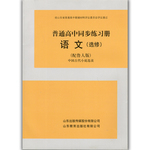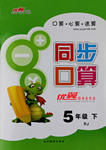题目内容
4.A Look Inside a Thief's Mind1.Of course I look familiar.I was here just last week cleaning your carpets,painting your shutters,or delivering your new refrigerator.
2.Hey,thanks for letting me use the bathroom when I was working in your yard last week.While I was in your home,I unlatched the back window to make my return a little easier.
3.To you,leaving that window open just a crack during the day is a way to let in a little fresh air.To me,it's an invitation which I am more than happy to accept.
4.If it snows while you're out of town,get a neighbor to create car and foot tracks into the house,or it will be a dead giveaway.By the way,loud dogs and nosy neighbors are the two things I hate most.
5.It's raining,you're fumbling with your umbrella,and you forget to lock your door---understandable.But understand this:I don't take a day off because of bad weather.
6.Do you really think I won't look in your sock drawer?I always check dresser drawers,the bedside table,and the medicine cabinet.Here's a helpful hint:I almost never go into kids'rooms.
7.You're right:I won't have enough time to break into that safe where you keep your valuables.But if it's not fastened,I'll take it with me.
8.Avoid announcing your vacation on your Facebook page.It's easier than you think to look up your address.
25.Money and valuables might be the safest if kept in yourA.
A.kids'room B.sock drawer C.medicine cabinet D.safe
26.We can draw a conclusion from the text thatC.
A.Thieves seldom steal in bad weather
B.if you do housework yourself,you'll stay away from thieves
C.you yourself are sometimes to blame for a theft
D.you can always count on your neighbors when you are out
27.The main purpose of the article is toD.
A.summarize when thieves steal most frequently
B.encourage people to spend money on home security systems
C.explain why thieves take up stealing
D.teach people how to protect their homes.
分析 短文主要讲述了一个贼的自述,包括什么时间作案,以及作案的方式等内容.
解答 25.A,细节理解题,根据第六点Here's a helpful hint:I almost never go into kids'rooms,可知贼不会去小孩的房间,也就是小孩的房间是最安全的,故答案为A.
26.C,推理判断题,根据第三点leaving that window open just a crack 可知打开窗户会给贼留下作案的可能,以及最后一点Avoid announcing your vacation on your Facebook page,在脸书上发布你的度假都会让贼有机可乘,故答案为C.
27.主旨大意题,短文主要讲述了一个贼的自述,包括什么时间作案,以及作案的方式等内容,通过这些介绍来教人们如何避免贼,如何来保护他们的家,故答案为D.
点评 解答任务型阅读理解题,首先对原文材料迅速浏览,掌握全文的主旨大意.因为阅读理解题一般没有标题,所以,速读全文,抓住中心主旨很有必要,在速读的过程中,应尽可能多地捕获信息材料.其次,细读题材,各个击破.掌握全文的大意之后,细细阅读每篇材料后的问题,弄清每题要求后,带着问题,再回到原文中去寻找、捕获有关信息.最后,要善于抓住每段的主题句,阅读时,要有较强的针对性.对于捕获到的信息,要做认真分析,仔细推敲,理解透彻,只有这样,针对题目要求,才能做到稳、准.

练习册系列答案
 海淀黄冈名师导航系列答案
海淀黄冈名师导航系列答案 普通高中同步练习册系列答案
普通高中同步练习册系列答案 优翼小帮手同步口算系列答案
优翼小帮手同步口算系列答案
相关题目
12.Another simple form of poem that students can easily write is the cinquain,a poem ________ five lines.( )
| A. | is made up of | B. | is making up of | C. | made up of | D. | making up of |
14.I hear Dennis has finished another book,How can he fit everything into his busy ?( )
| A. | regulation | B. | principle | C. | schedule | D. | movement |